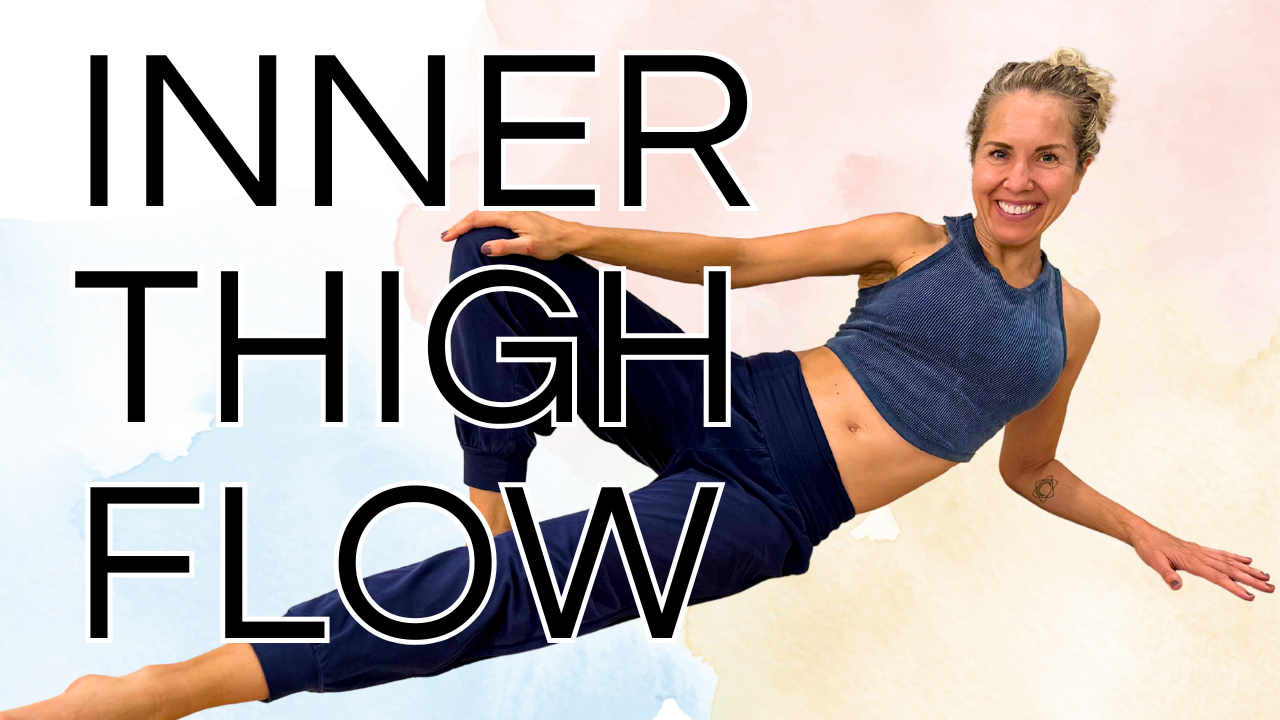Prenatal Fitness + Yoga Precautions
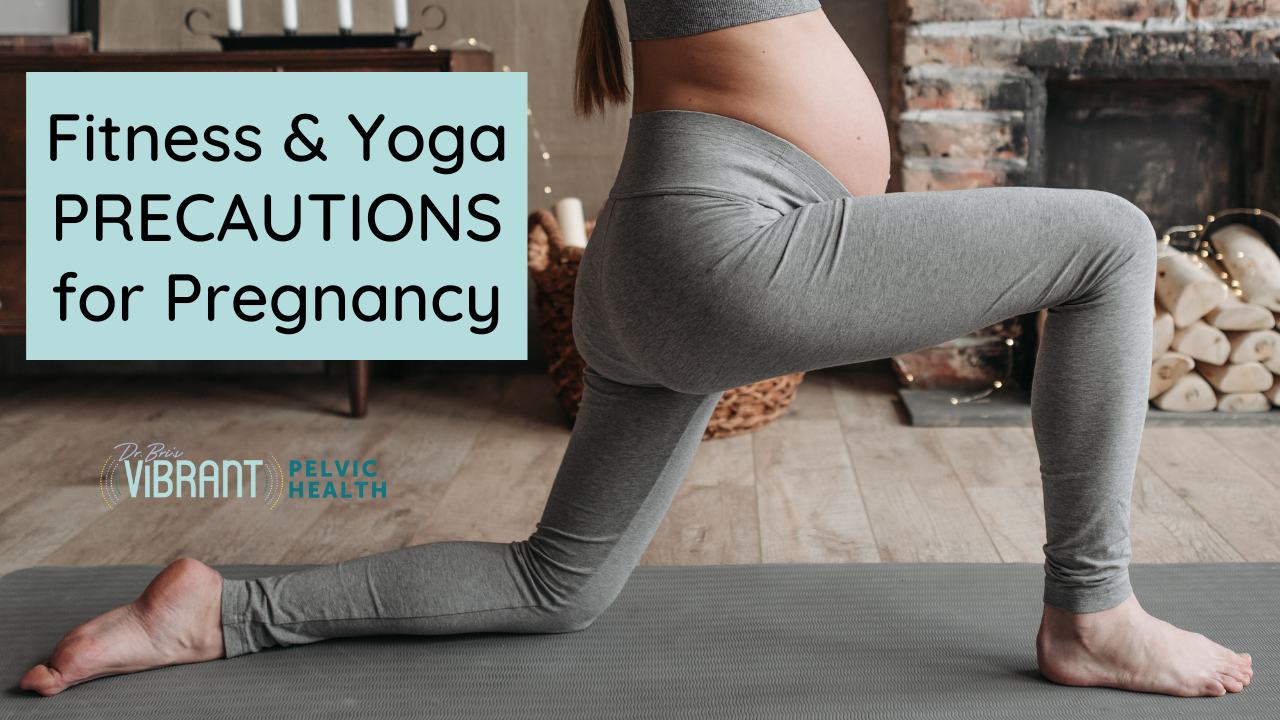
Calling all moms-to-be: I have prenatal fitness classes on YouTube! Many of my clients and followers are either pregnant, trying to conceive, or recently postpartum, and I have lots of options for mamas.
Click the video below for a yummy 30-minute prenatal yoga class. It's great for anyone, even if you're NOT expecting!
In this video, I am accompanied by my friend Sabina. A few weeks after we filmed this video, she delivered a beautiful, healthy, happy baby boy!
Let's talk about PRECAUTIONS for fitness and yoga during pregnancy.
Prenatal Fitness + Yoga Advice and Precautions
-
Talk to your doctor before starting any new exercise program. This is especially important if your pregnancy is high risk, if your baby is breech, or if you are expecting twins.
-
Ideally, work with a yoga or fitness professional who understands the prenatal period. TELL your yoga/fitness teacher that you are pregnant, even if you think it's obvious! He or she is NOT going to ask you if you're expecting... Because who wants to make THAT mistake (if you're not pregnant)???!!!
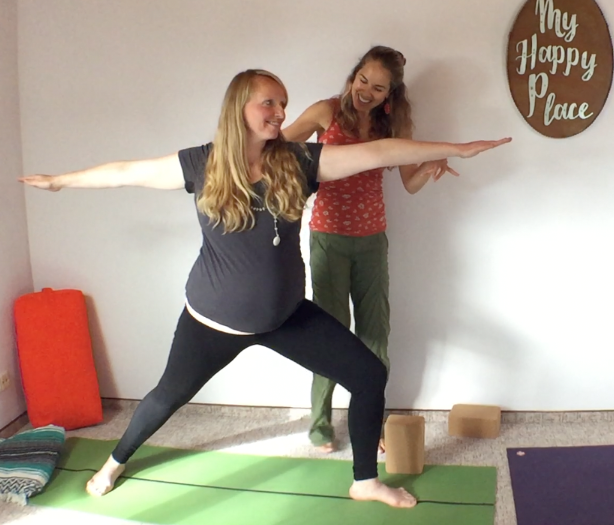
-
Pregnancy is not a time to aggressively advance your yoga practice or your fitness regimen. Although some gentle core work is fine, intense abdominal exercises should be avoided to allow your abs to soften and release in preparation for the stretching ahead. In other words, skip the "Ab Ripper" class at your local gym!
-
Rather than thinking of your prenatal period as a time to "tone up," think of it as a time to TUNE IN to your body and really listen to what it wants to do. Embrace the beautiful changes that are occurring EVERY DAY.
-
If you feel ANY DISCOMFORT, nausea, dizziness (etc.), always err on the side of caution and STOP. Take a rest, and sit it out. Your baby will thank you!
More tips for fitness + yoga during pregnancy:
-
Eat something small an hour or two before your class, and have a healthy snack handy in case you feel nauseous during class.
-
Sip on water throughout your exercise session. Pregnancy requires extra blood volume which requires EXTRA WATER! Do not deprive your body (and your baby) of this vital requirement!
-
Avoid classes that are heated (such as hot yoga) since you don't want to raise your body's core temperature beyond what naturally occurs during exercise.
-
Don't "stretch" your limits. When you're pregnant, you might feel super flexible due to the hormone relaxin, which is intended to loosen and soften your ligaments to prepare your body for birth. This softening of the connective tissues can make you vulnerable to over-stretching. Avoid going further into yoga poses or fitness moves than you are accustomed to.
-
Skip the deep twists. Deep twists from your belly should be avoided as they can compress the internal organs (and your baby). Instead, twist very gently from the shoulders, or do an open twist. See the image below for an example.
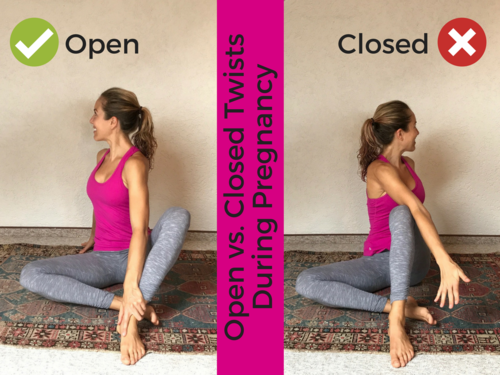
-
Be SUPER careful with jumps or high-impact activities. They pose a slight risk of dislodging the fertilized egg from the uterus and should be avoided, especially during the 1st trimester. Later in pregnancy, jumps are likely going to be uncomfortable and might cause bladder leakage issues.
-
Avoid extreme inversions such as headstand, handstand, shoulder-stand, plow, (etc.) and realize that your balance will shift and change as you progress through pregnancy. Take balance poses to the wall, or have a countertop or other stable surface nearby. Don't be superwoman right now (you're already a superhero simply by growing a baby inside of you)!
-
Deep backbends such as full wheel pose or full camel pose should be avoided after the first trimester. They put a lot of strain on your anterior abdominal wall, and they can compress the baby.
-
Belly-lying poses such as cobra should be avoided after the first trimester. Replace prone (belly-lying) positions with hands and knee positions for short periods of time.
-
Extended periods of back-lying (supine position) is usually advised against after the first trimester due to the potential of your uterus compressing the Vena Cava (a major vein in your body that returns blood to your heart). However, brief periods of back-lying are typically fine as long as you don't feel any discomfort. Use bolsters, pillows, blocks, and other props to help support you in positions that ARE appropriate for your body's changing needs.
- Side-lying exercises can be wonderful during pregnancy! Here's a video with lots of great options if you're wanting to strengthen and care for your hips:
-
ALWAYS have bolsters, blocks, and other props handy to provide extra support (and SAFETY) during fitness and yoga classes.
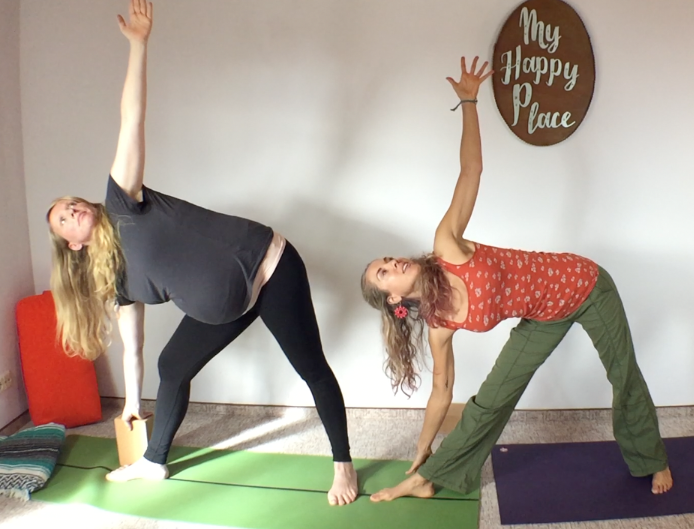
-
Breathe... But don't go crazy with pranayama. Avoid pranayama (breath exercises common in yoga) that involve breath-holding or rapid inhales and exhales (such as Kapalabhati breathing). A nice alternative is a very simple technique of breathing in through your nose and out through your mouth slowly.
-
Left side-lying may encourage optimal birth position. If your fellow yoga classmates are inverting or deeply twisting (or anything else that feels uncomfortable to you), lie on your left side for a moment. Or take the time to do some pelvic floor exercises with a focus on the relaxation/release phase.
Please don't let this long list of do's and don'ts scare you off from MOVING YOUR BODY when you're pregnant! Movement should never be feared, and in fact, it's one of the best things you can do to optimize your birthing process AND your postpartum recovery. Just use common sense and avoid anything that feels "off."
Additional prenatal and postpartum recovery videos:
Until next time remember: Eat clean, move every day, and you (and your baby) WILL shine brighter.
Sending light and love! ~Dr. Bri, PT, DPT
Please share this info with anyone you know who is currently — or plans to be — pregnant, and be sure to subscribe to my YouTube channel for more women's health and fitness information.
Does your pelvic floor need help?
Many women think they just need live with the changes they’re experiencing
“down there,” but this is NOT the case. Take the short quiz to find out if you have issues that can be solved naturally.





